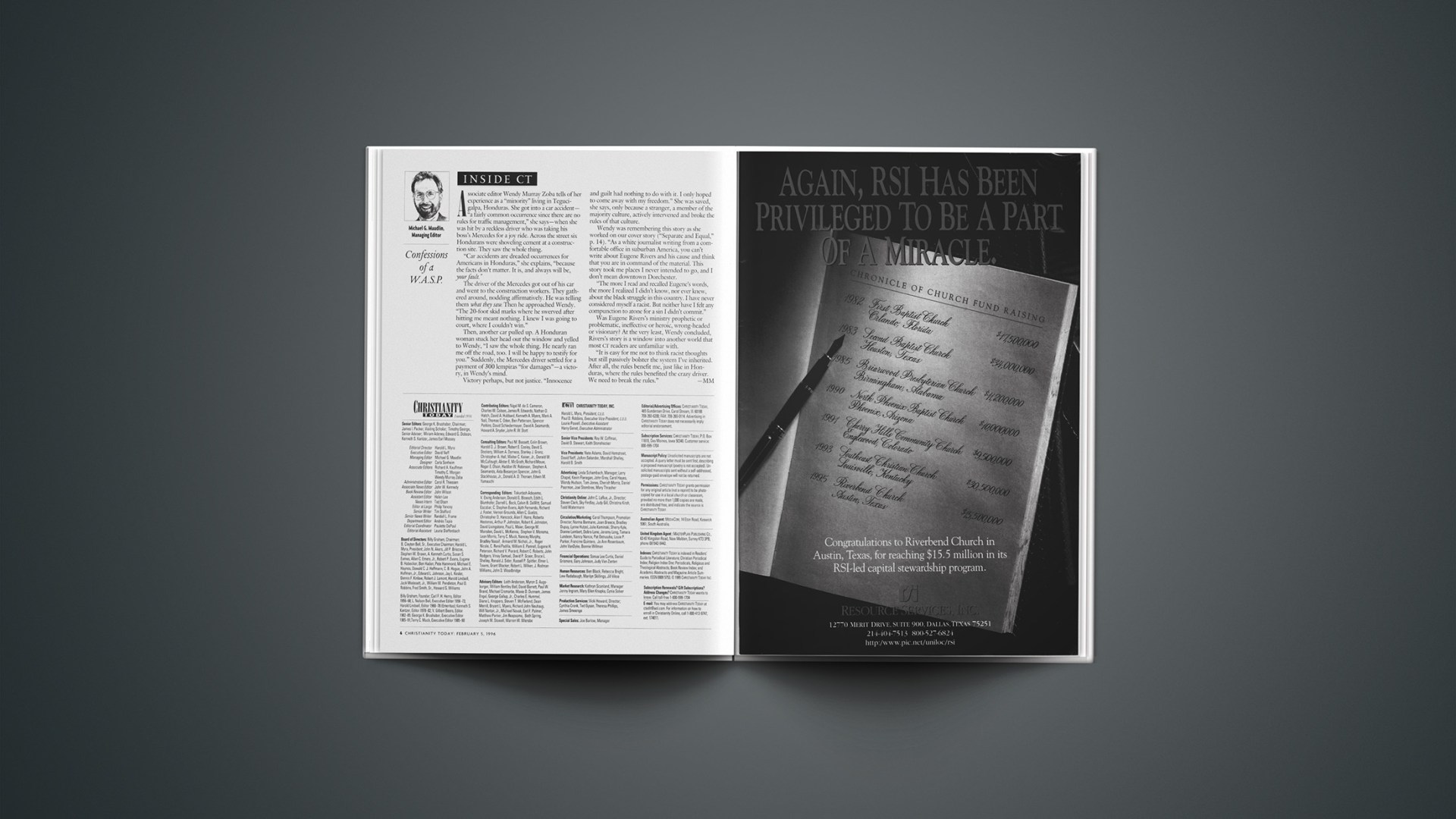Associate editor Wendy Murray Zoba tells of her experience as a “minority” living in Tegucigalpa, Honduras. She got into a car accident–“a fairly common occurrence since there are no rules for traffic management,” she says–when she was hit by a reckless driver who was taking his boss’s Mercedes for a joy ride. Across the street six Hondurans were shoveling cement at a construction site. They saw the whole thing.
“Car accidents are dreaded occurrences for Americans in Honduras,” she explains, “because the facts don’t matter. It is, and always will be, your fault.”
The driver of the Mercedes got out of his car and went to the construction workers. They gathered around, nodding affirmatively. He was telling them what they saw. Then he approached Wendy. “The 20-foot skid marks where he swerved after hitting me meant nothing. I knew I was going to court, where I couldn’t win.”
Then, another car pulled up. A Honduran woman stuck her head out the window and yelled to Wendy, “I saw the whole thing. He nearly ran me off the road, too. I will be happy to testify for you.” Suddenly, the Mercedes driver settled for a payment of 300 lempiras “for damages”–a victory, in Wendy’s mind.
Victory perhaps, but not justice. “Innocence and guilt had nothing to do with it. I only hoped to come away with my freedom.” She was saved, she says, only because a stranger, a member of the majority culture, actively intervened and broke the rules of that culture.
Wendy was remembering this story as she worked on our cover story (“Separate and Equal,” in this issue). “As a white journalist writing from a comfortable office in suburban America, you can’t write about Eugene Rivers and his cause and think that you are in command of the material. This story took me places I never intended to go, and I don’t mean downtown Dorchester.
“The more I read and recalled Eugene’s words, the more I realized I didn’t know, nor ever knew, about the black struggle in this country. I have never considered myself a racist. But neither have I felt any compunction to atone for a sin I didn’t commit.”
Was Eugene Rivers’s ministry prophetic or problematic, ineffective or heroic, wrong-headed or visionary? At the very least, Wendy concluded, Rivers’s story is a window into another world that most CT readers are unfamiliar with.
“It is easy for me not to think racist thoughts but still passively bolster the system I’ve inherited. After all, the rules benefit me, just like in Honduras, where the rules benefited the crazy driver. We need to break the rules.”
Copyright © 1996 Christianity Today. Click for reprint information.










